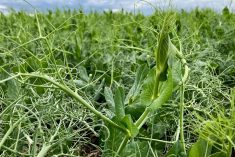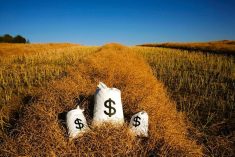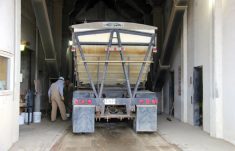MarketsFarm — Canada’s hemp acres are set to double in 2019, according to the most recent principal field crop acreage report from Statistics Canada.
The hemp industry is experiencing somewhat of a boom as hemp products of all stripes enter mainstream consumer markets.
“Health Canada is running at least double the number of hemp license applications,” said Ted Haney, executive director of the Canadian Hemp Trade Alliance.
About 80,000 acres are slated to grow hemp, and will produce hemp hearts, hemp oil and livestock feed.
Read Also

Alberta crop conditions improve: report
Varied precipitation and warm temperatures were generally beneficial for crop development across Alberta during the week ended July 8, according to the latest provincial crop report released July 11.
“The vast majority of hemp acres seeded and harvested will generate grain, mostly for human consumption,” said Haney.
Similar to barley produced for either malt or feed, hemp that does not meet food standards is reclassified and sold as livestock feed.
“The feed market is a support market, not the primary market, though it’s from the same product,” said Haney.
“It becomes feed if it’s off weight, or has colour issues, or sat in inventory for too long,” he explained. “Then it becomes reclassified.”
Haney also explained that producers make the decision to sell hemp seed for feed grain if they don’t want to wait for a scheduled food processor pickup.
“If they want to generate cash immediately, they move their inventory to the livestock market,” he said.
Human consumption drives most of the hemp market, due in no small part to the significant legal red tape that is involved in producing other hemp products. Hemp growers can also sell the product’s flowers and leaves to cannabis processors, who extract CBD oil.
“Legally, right now, CBD can only be sold by a licensed processor. That’s the only legal pathway,” said Haney.
Conventional hempseed is currently selling between 50 to 60 cents/lb., while its organic counterpart is between $1.25 and $1.60/lb.. Hemp fibre is between $100 and $150 per tonne, and biomass is around 40 cents/lb.
“This industry was built, from 1998 to 2018, by one revenue source, and that’s food,” said Haney.
In 2018, the hemp industry generated $96 million in exports, and $42 million in domestic sales, according to the CHTA.
— Marlo Glass writes for MarketsFarm, a Glacier FarmMedia division specializing in grain and commodity market analysis and reporting.
















